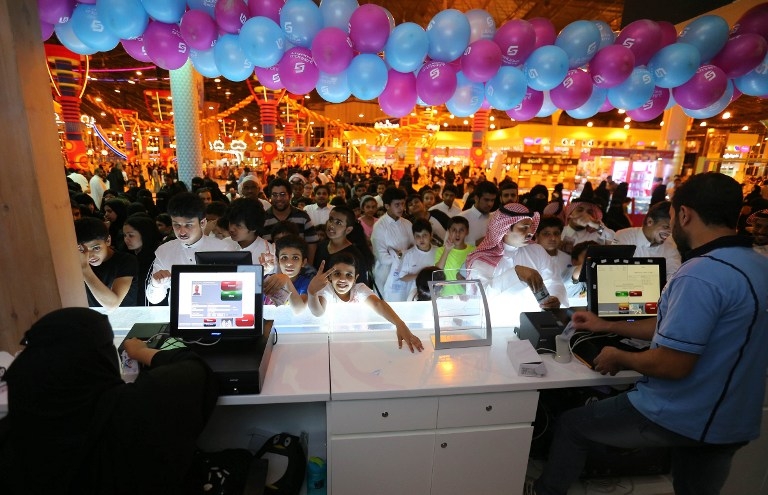Saudi Arabia restricts jobs in shopping malls to Saudis

Saudi Arabia's labour minister issued an order on Thursday to restrict employment in shopping centres to Saudi nationals, who currently make up only one-fifth staff in the retail sector.
The kingdom has been steadily closing off different areas of employment to foreigners, who comprise about a third of the population, as it aims to create jobs for young Saudis and cut unemployment rates.
A statement from the minister for labour, posted on Twitter, defined shopping centres as "closed commercial centres", but did not elaborate on the number of jobs affected or a timeline for implementation.
The announcement comes a week after the Phillipine labour secretary, Silvestre Bello, announced that Saudi Arabia had asked for more Fillipino workers.
There are an estimated 760,000 Filipinos working in Saudi Arabia, making it the second-largest employer of Filipinos overseas. Saudi officials told Bello they needed Filipinos to work in retail as well as other areas of the economy.
According to the Vision 2030 economic reform plan released last year, the Saudi retail sector currently employs 1.5 million workers, of whom only 300,000 are Saudis. The plan calls for a million new jobs for Saudis in the sector by 2020.
And so it had been widely expected that demand for foreign workers would fall due to the country’s policy “Saudisation”, or giving jobs to Saudis, and a dip in oil prices.
Under the vision 2030 reform plan Saudi Arabia wants unemployment among its citizens to fall to nine percent by 2020, against 11.6 percent last year.
One of the fundamental goals of Vision 2030 is to halt Saudi’s traditional reliance on foreign labour in the private sector.
But the government is likely to face tough resistance as many Saudis are employed in the public sector and work about 35 hours a week, take two days of each week off and enjoy generous health and pension provisions.
On the other hand, private sector workers can expect to work a 48-hour week, get only one day off and no automatic national and religious holidays.
About half of the the annual budget of the kingdom is spent on government employees.
The country’s efforts to cut the budget deficit from $98bn to $79bn in 2016 had been met with some success.
But austerity has sparked uproar among Saudi youth, many of whom want private sector jobs but with the benefits enjoyed by public sector employees.
Stay informed with MEE's newsletters
Sign up to get the latest alerts, insights and analysis, starting with Turkey Unpacked
Middle East Eye delivers independent and unrivalled coverage and analysis of the Middle East, North Africa and beyond. To learn more about republishing this content and the associated fees, please fill out this form. More about MEE can be found here.




